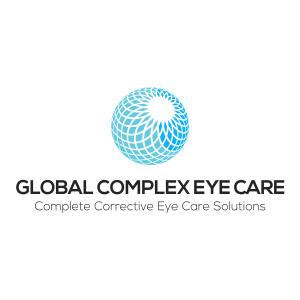Pellucid Marginal Degeneration:
Pellucid Marginal Degeneration is a sub-category of Keratoconus. Pellucid corneas involve a larger distorted geographic area usually extending from the inferior corneal margins up to the center of the cornea. It is not unusual for 50% or more of the corneal surface to be involved. Because so much of the cornea can be affected, fitting this type of cornea can be challenging. The problem we face as eye care practitioners is fitting the steep areas if the cornea without adversely affecting the flatter areas.
PVR PROSE Lenses | GPVR PROSE Treatment:
PVR PROSE- Precision Vision Rehabilitation Prosthetic Replacement of the Ocular Surface Ecosystem
Our PVR PROSE Treatment is a process that uses a prosthetic device, like a scleral lens, to replace the ocular surface to provide functional vision to complex corneal conditions. Utilizing our knowledge, experience, and technology, like the Vistante- Optical Coherence Tomography OCT, we are able to customize a prosthetic PROSE lens, with the precise measurements down to the micron. With an exact fit, there is proper movement, comfort, and perfect vision.
PROSE Lenses are large-diameter gas permeable contact lenses specially designed to vault the entire corneal surface and rest on the “white” of the eye (sclera). In doing so, PROSE scleral lenses functionally replace the irregular cornea with a perfectly smooth optical surface to correct vision problems caused by, keratoconus, Lasik failures, post-surgical complications, and other corneal irregularities.
Because PROSE Lenses / scleral lenses are designed to vault the corneal surface and rest on the less sensitive surface of the sclera, these lenses often are more comfortable for a person with corneal irregularities caused by keratoconus and other corneal irregularities A special liquid fills the space between the back surface of the lens and the front surface of the cornea. This liquid acts as a buffer and protects the compromised corneal tissue. Scleral lenses are designed to fit with little or no lens movement during blinks, making them more stable on the eye, compared with traditional corneal gas permeable lenses. These lenses are almost always very comfortable and the vision provided by them is extremely good. The great majority of patients are able to wear their scleral lenses almost all of their waking hours without problems.
Dr. Irwin Azman, Keratoconus Specialists in Maryland, prescribes PVR PROSE Lenses for a variety of hard-to-fit eyes, including patients with Stevens-Johnson Syndrome, Radial Keratotomy and Lasik Complications and Lasik failures, keratoconus, Corneal Ectasia, Post-Surgical Vision Loss, and Pellucid Marginal Degeneration.
Dr. Irwin Azman specializes in keratoconus, LASIK failures and other corneal irregularities neither avoids nor declines the challenge of prescribing the most difficult cases.
